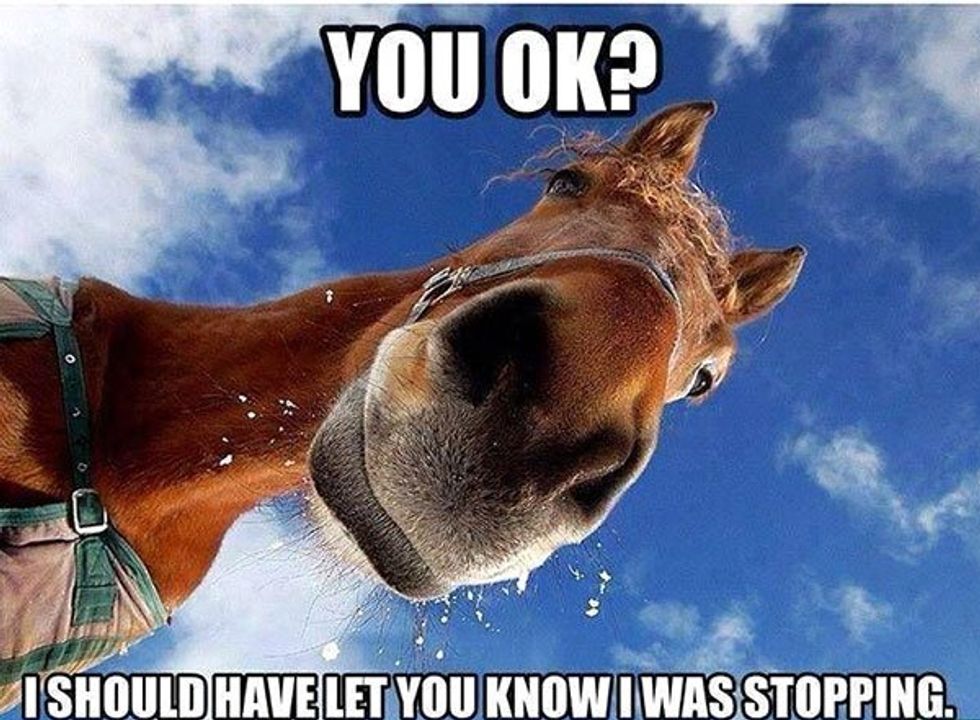This summer when I was at Hartsfield-Jackson International Airport's extraordinarily crowded lobby attempting to check my bags in, I was instantaneously surrounded by thirty white high school students and their chaperones. I took a good look at their shirts that said: Let's Save Costa Rica! Confused by the message, I asked them about their trip and what they were doing. One of the girls next to me quickly exclaim that they are going on a "mission trip" to help build house, donate good and clothing, and help them find "the Lord".
Ah, voluntourism at its finest.
A little disclaimer before we begin: Although I have a lot of issues about how volunteering in foreign countries is done today, a lot of aid is actually helpful. Long-term projects that help communities build themselves up and encourage domestic economical growth is helpful. Services that educate groups in order for them to achieve self-reliance are beneficial. I'm not totally bashing helping countries in need; I'm saying we need to fix corrupt practices that happen way too often now.
Voluntourism is a large industry within privileged countries like the United States where people, mainly high school or college students, pay money to go help "third-world countries". On the surface, it seems as though these projects are sweet activities that can broaden a privileged kid's world-view. In actuality though, voluntourism fuels the white-savior complex prominent in American culture as well as breaks down the self-esteem and self-sufficiency of foreign areas.
Many people who go on these trips, high school and college students, go to pad out their resumés and applications to make them look attractive to prospective jobs and colleges. Many other adults who choose to go on these trips also go to "find themselves" or to "experience how the other side lives" - all of these reasons are centered around the volunteer rather than the individuals who actually need the aid. When the volunteers actually arrive at the scene, many of them are uneducated in how to build stable structures, provide medical care, or are suitable to teach children. These volunteers end up making little-to-no impact within the foreign community because they don't know what they're doing. Because a lot of the work in foreign countries is short-term, voluntourists often do not understand the culture of the area they arrive in and normally leave without learning anything--they don't integrate themselves within the community. They instead tend to live in separated areas specifically built for them, among people and cultures that they're familiar with.
Looking at the other side, these voluntourists have an extremely negative affect on the communities themselves. They arrive at foreign communities with the automatic assumption that they need saving, devaluing the community because they feel that the community cannot fend for itself. It assumes that the people in the community are not capable of self-sufficiency. This creates a dichotomy of "savior" and "victim" where we look down upon the "victim" in need of a "savior" even before the "victim" gets a chance to save themselves. Voluntourism also creates a system of dependency where people will continue to rely on "free" foreign aid--when a foreign community is supplied with medical aid, rather than that community fixing their own medical system, they are now dependent on foreign aid given by a privileged country who can rescind their offers of aid at any time. These other countries will also be unprepared in times of emergency when foreign aid cannot get to them in a rapid amount of time or when the foreign aid chooses to leave. Giving these countries material objects or services as "aid" also breaks down local economies. These communities have people capable of building structures, making clothing, and growing food, so the invasion of "foreigners" who bring clothes, food, or try to construct buildings take jobs away from local people who cannot reinvest money into their community.
As important as it is to help others in need, it is way more crucial to analyze the ripple effect actions can have. In essence, the next time you or someone you know chooses to go on a mission trip think about this quote: Give a person a fish and they can feed themselves for a day; teach them to fish and they can feed themselves for a lifetime. The goal of foreign aid should be sustainable change and creating more opportunities for underprivileged individuals, not going for the 'gram.

















 teenhorseforum
teenhorseforum














